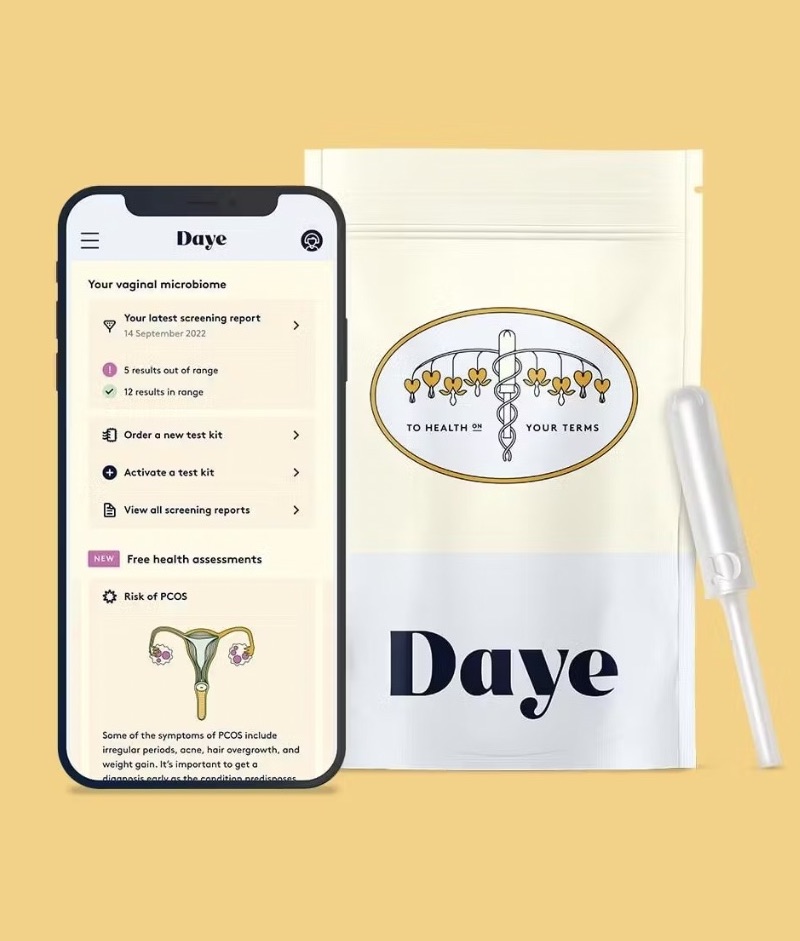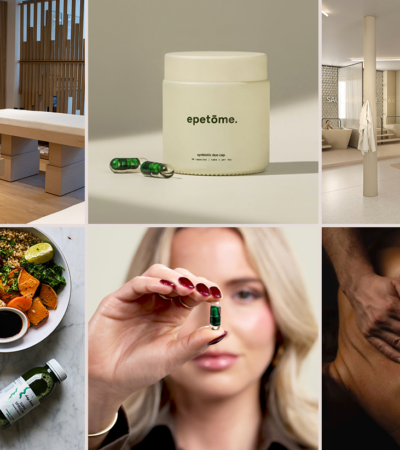As a confessed health junkie, wellness writer and hypochondriac it would have been remiss of me to not try the wave of at-home health tests that have flooded the health market recently. Personalised wellness is positively impacting and shaping the wellness industry and is here to stay. So, I dove head first into lifting the lid on my health and the results were fascinating – and reassuringly for all the at-home health test brands – each of the tests seem to come back saying the same thing but just in a variety of ways. This is the genius of at-home health testing, it is a fast way (albeit for a cost) of getting a much clearer insight into a health issue you are worrying about. However, before you head online to buy one for yourself, whilst these at-home tests are no doubt ensuring we get help quicker, and helping us address soon-to-be problems at an earlier stage, they don’t come without all risk. Here are my (and a few of my fave experts) top tips to consider before you go down the route of at-home health tests:
- Always See Your GP First If You’re Worried
If there is something that you are worrying about with regards to your health, it is a really good idea to have a conversation with your doctor about it before you go down the at-home self-testing route. Not only might your doctor be able to give you advice that might help your issue, but they might even be able to guide you as to the best at-home health test if you tell them that you would like to investigate further. Also, there is every chance that you might not even need to do an at-home health test in which case your doctor has just saved you from parting with your hard-earned cash. From personal experience, I worry a lot about my health and sometimes you might not get the reassurance you were hoping for within an at-home health test, which can only fuel the anxiety further (even though you really have nothing to worry about). Plus, other anxieties can be attached to at-home health testing, such as although you might be testing for one thing, the test might throw up something else in your results, which can cause further anxiety – this is why I really recommend speaking to a doctor before even embarking on the at-home health testing route. And certainly make them aware of your anxieties if you do suffer from worrying a lot about your health.
- Check a Brand’s Credentials
Dr Hana Patel, a GP based in London and Health Coach recommends that you make sure you go with a reputable company and “that people look for a company that works with certified labs and offers support from medical professionals”. Just like anything when it comes to the wellness industry, it is really important to do your research and check that the at-home health test you’re going with can deliver accurate test results. As whatever your results say, in many cases you’re likely to make some serious lifestyle changes because of them – so you want the results to be right.
- Make Sure You Discuss Any Results with A Qualified Professional
Making sense of your test results can often be confusing and worrying. It is really important that you discuss your results with a healthcare professional – and actually it is a good indication of the at-home test brand if they have great on-boarded experts and deliver this service as part of the service. Dr Patel says “depending on where you go, most at-home tests are a self-pay service to provide access to blood tests and results to patients quickly. [If the brand does not provide the interpretation service with a professional], it is important you take your results to a doctor for review. I see many patients who have had blood tests like these and they need interpreting in relation to their symptoms and medical conditions”.
- Stay In Tune With Your Body
Although getting data on how your body is doing is a fantastic way to optimise our health, there is an argument to making sure we don’t just rely on what an at-home health test tells us. Miranda Lewis, Health Coach and Owner of Eat Breathe Meditate is concerned that relying on data to tell us how we are is moving us away from understanding our own bodies and how we are feeling “I think the danger with this trend for data is that it takes us further from being in tune with ourselves”. Nutritionist, Selene Gulbache celebrates the potential of at-home health tests but worries “about the slippery slope towards dieting mentality and disordered eating”, which she has seen in the past. Most of the good testing brands come with a warning that if you have experienced eating disorders in the past then you must consult your doctor before you embark on one of their tests – however, not all of them carry this warning. Selen continues “let’s focus on intuitive eating, body awareness, and building a healthy relationship with food. These tests can be tools for understanding, not for fueling obsessions”.
- Do The Test Properly (read the instructions!!)
Dr Patel says “it is also important to follow instructions for collecting samples carefully, as any error could reduce the accuracy of the test.” Therefore it pays to make sure that you have the process for collecting the samples down to a T before you actually do it. I find watching the How To YouTube videos that the brands often recommend absolutely imperative. Also many health tests (such as a vaginal health test I did) have strict timing windows in which you can actually do the test and it is important to get these right so as not to skew the results.
- At-Home Tests Will Help You Understand Your Body Better
It really is just how much you’ll learn about your body with some of these at-home health tests. From testing my hormones to my gut microbiome, my vaginal health and even how my body responds to sugar and fat – my eyes have been opened to what is really going on in the inside of my body. The bigger learning for me has been that some of my seemingly “healthy habits” weren’t actually serving my body anymore. Things like intermittent fasting and regular running have actually been found to be having a harmful effect on my health and I am grateful to be armed with this knowledge. After receiving these results I spoke with the brand’s experts and my own GP too, to help me put in place new health rituals that will have a much more positive impact on my body as I age. It is certainly true that what works for you in your 20s might not be the best thing for you in your 30s and almost certainly won’t be having the same positive effect as you head into your 40s (not quite there yet but nearly!). I spoke to Steven Dick, Co-Founder of The Fitness Group, who feels excited about what at-home health tests have to offer from a fitness and wellness perspective “Through leveraging technology we are moving into a new age where personalised recommendations based on science, the latest research will shape individuals awareness and health choices.” In fact, Steven believes that this new wellness trend will move the whole industry forward and as such is training his PTs to better understand how to work with clients’ individual needs based on findings from health tests that they have undergone “In previous years personal trainers would support their clients with calorie counting and meal tracking apps to get a shared view on a client’s nutrition habits, allowing the trainer to review and recommend changes. However, personal trainers will now need to adapt to a new world of personalised nutrition and alter their recommendations based on a match of individual needs and a set of governing principles that promote nutrient-rich foods.”


Best For Anti-Aging

Best for Vaginal Health

Best For Women’s Health

Best For Men’s Health















